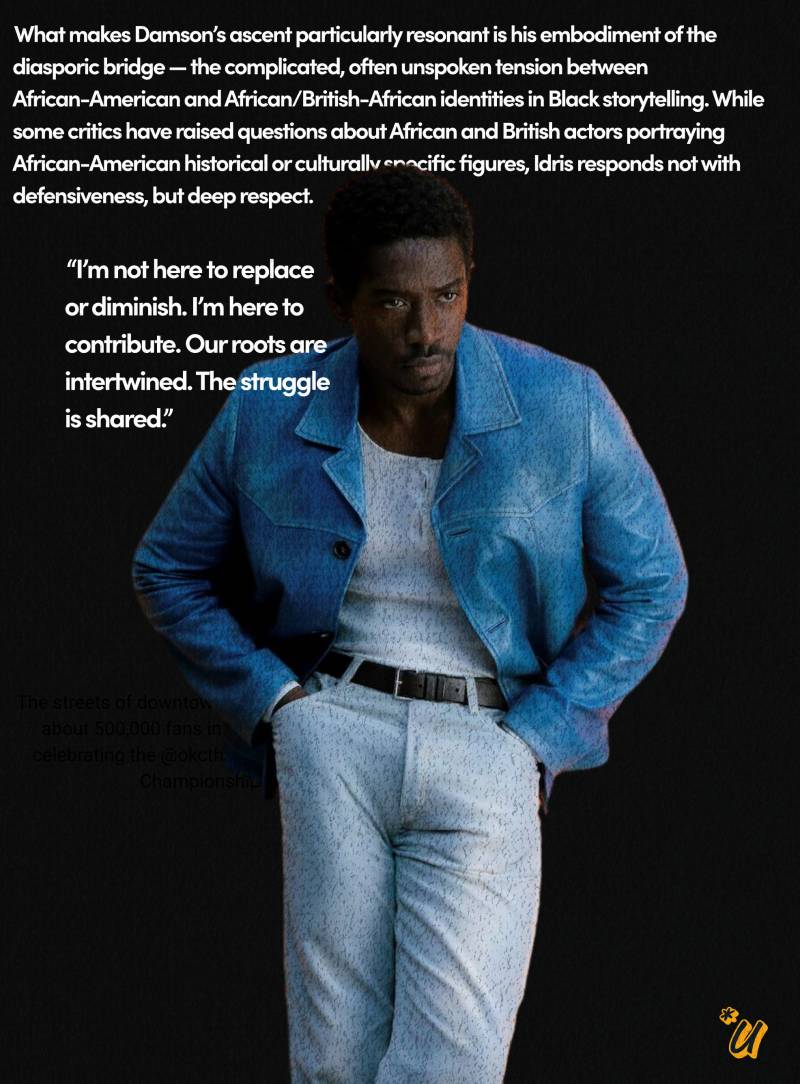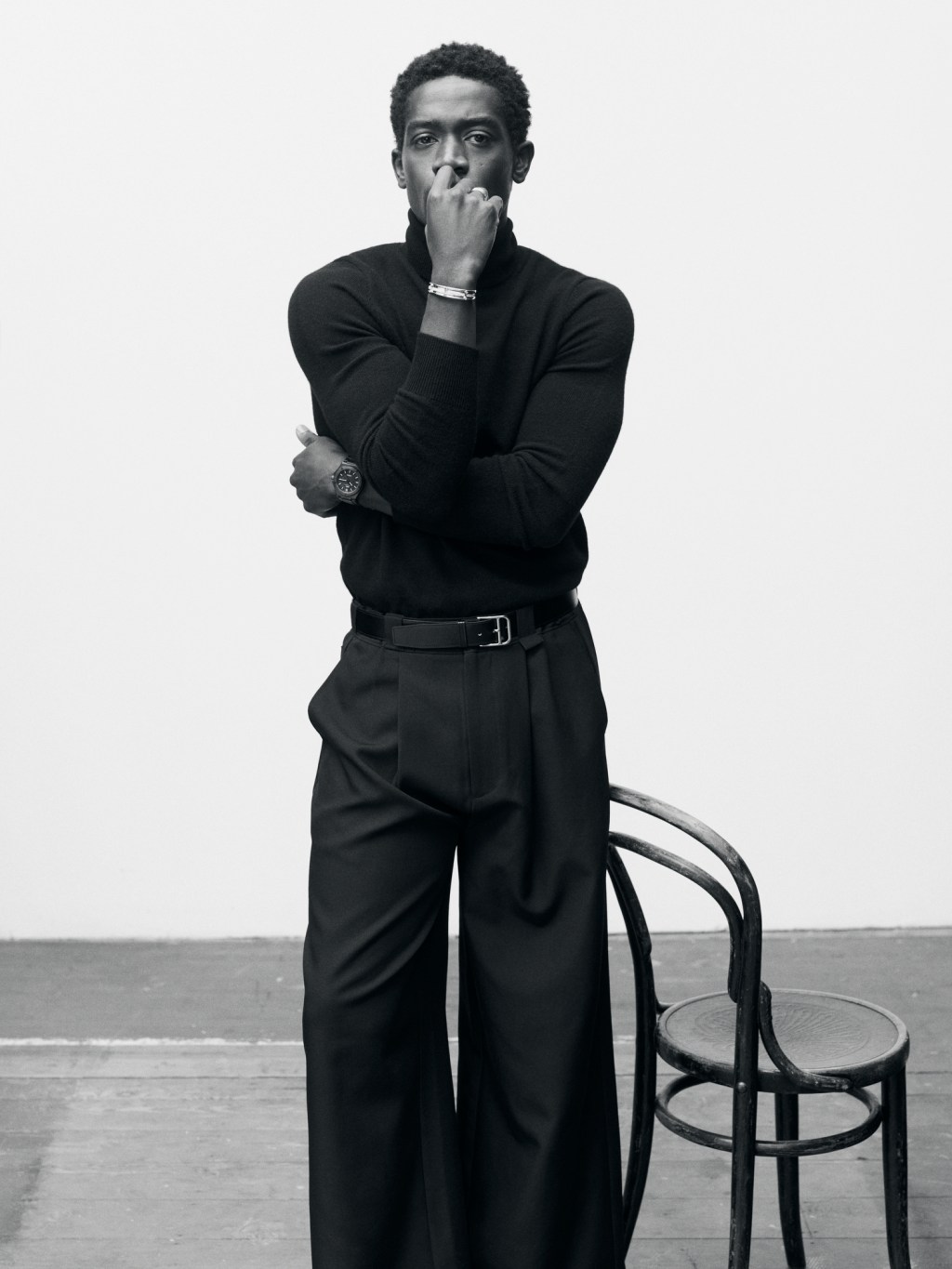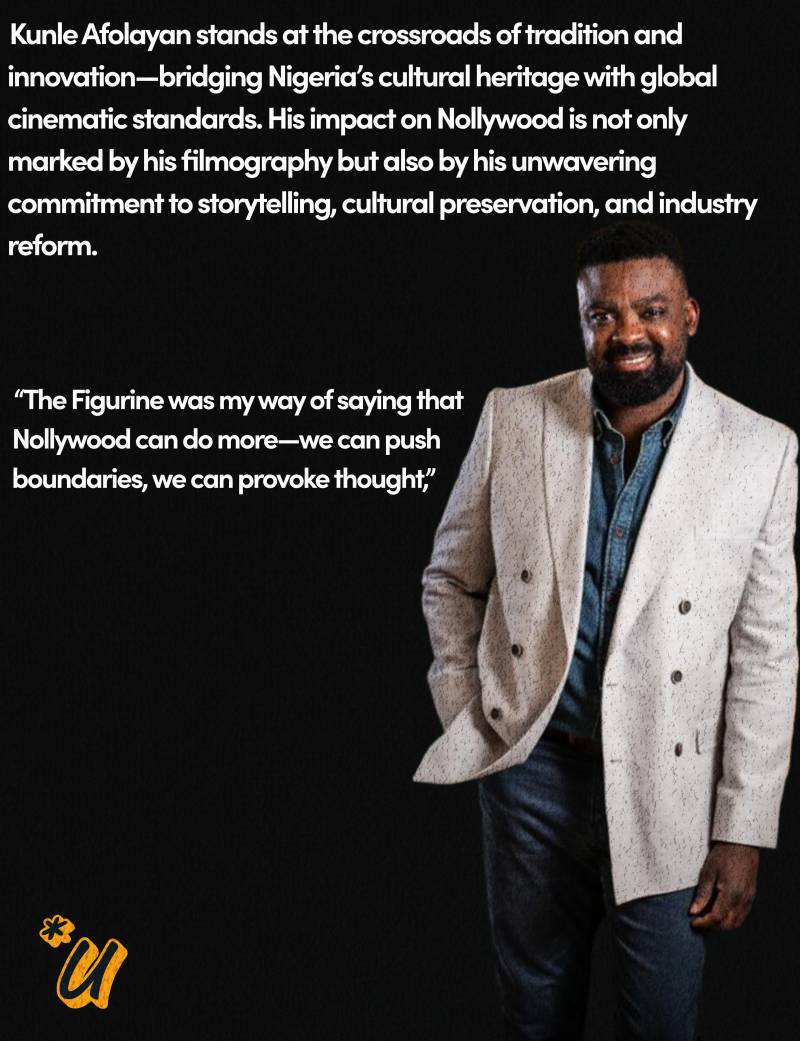The success of actors like Idris Elba, Daniel Kaluuya, Michaela Coel, and now Damson Idris isn’t coincidental. It’s a broader movement — one that reflects how African-descended talent is no longer merely participating in Hollywood, but redefining it. Damson Idris — born in Peckham, South London to Nigerian parents — didn’t grow up dreaming of Hollywood. In fact, football was his first love. But fate, mentorship (notably from British theater), and raw talent brought him to the world stage. His breakout performance in Snowfall as Franklin Saint, a drug kingpin navigating the chaos of 1980s Los Angeles, was more than just an acting gig — it was a political act.
Damson Idris has steadily risen through the ranks of Hollywood, largely due to his gripping portrayal of Franklin Saint in the FX series Snowfall. The role, demanding both emotional depth and psychological complexity, earned him critical praise. For many, his performance in Snowfall was Oscar-worthy — not just because of his transformation, but due to the way he humanized a character entrenched in the drug trade without glorifying it. In the interview, Idris shared his excitement about working with Brad Pitt, describing the Hollywood icon as “gracious, professional, and sharp.” While he didn’t give away much about the project they worked on, he emphasized how working alongside such seasoned actors challenges him to refine his craft. “Every set is a learning ground,” he told Ebro, “and being surrounded by people with decades of experience pushes you in the best ways.”

Related article - Uphorial Sweatshirt

As the conversation progressed, the topic of identity came up, particularly being a Nigerian-Brit in the American entertainment space. Damson didn’t shy away from the complexity. “There’s always a tension between staying true to where you’re from and adapting to where you are,” he said. “But it’s that tension that gives you a unique voice.” His journey reflects the broader narrative of Nigerians in the diaspora — actors like Chiwetel Ejiofor, David Oyelowo, John Boyega, and Cynthia Erivo, who are not only shaping Western film narratives but also ensuring Africa is no longer seen as a distant backdrop but as a wellspring of talent and storytelling. Each of these actors brings a piece of Nigeria with them — whether it’s in the roles they choose, the accents they slip into, or the stories they help bring to life.
Nigerians in diaspora are no longer peripheral in Hollywood; they are central. From Lupita Nyong’o’s Oscar win to Uzo Aduba’s multiple Emmy awards, it’s evident that Nigerian heritage is becoming increasingly visible in Hollywood’s most competitive spaces. And it’s not just about winning roles — it’s about shaping narratives. Damson mentioned that he hopes to produce and tell more African stories authentically, not just those filtered through the lens of Western interests.
On Snowfall, Damson’s embodiment of Franklin Saint is a case study in transformative acting. Over six seasons, he evolves from a hopeful street-smart teen to a ruthless drug kingpin consumed by his empire. This performance not only demands range — from vulnerability to violence — but it also requires Idris to convincingly portray an American South Central LA accent, something he perfected with remarkable precision. While the series itself might not have garnered mainstream awards recognition, within the industry and among fans, his performance is widely regarded as one of the best on television in recent years.
Ebro closed the segment by asking Idris what drives him. His answer? “Legacy.” He spoke about wanting to inspire young Africans to dream beyond their borders, to not just aim for Hollywood, but to create their own Nollywood-to-Hollywood pipeline — one built on excellence, not compromise. In an era where representation matters more than ever, Damson Idris stands as a symbol of what’s possible — a British-Nigerian actor who didn’t just break into Hollywood but is now shaping it. His presence, along with the growing number of Nigerians making waves globally, is not a passing trend. It’s a shift — a new chapter in the story of global cinema, written in bold by those once considered outsiders.



